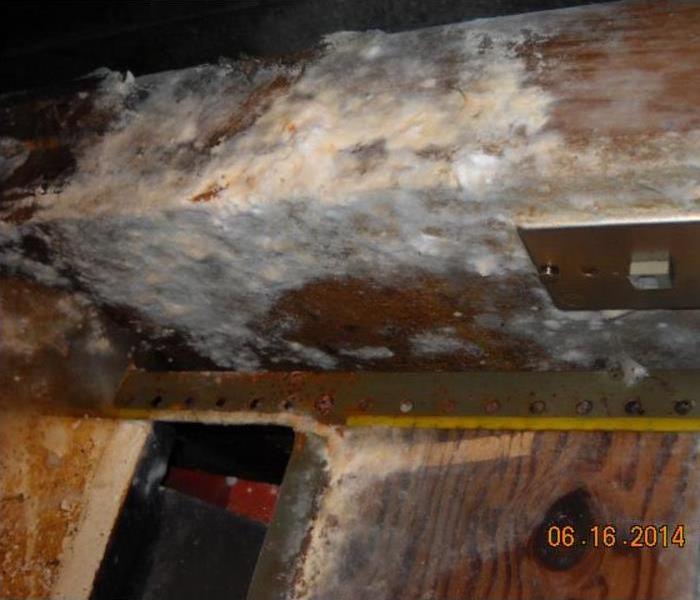Heightened Humidity Levels Can Escalate Mold Growth
6/15/2017 (Permalink)
The hot, humid weather of Michigan's late spring and summer months bring about the perfect conditions for mold growth. While the ideal temperature for mold growth is between 77°F and 86°F, mold can grow at any temperature from 32°F up to 95°F.
Although mold is ubiquitous, it does require three things to grow - nutrients, moisture and time. Mold can obtain nutrients from many sources, but substances with a high cellulose content provide the most. A material which is highly cellulose is found in nearly every home - drywall. Other nutrient sources include dust and dander. Moisture aids in the decaying process caused by mold. When water vapor condenses on surfaces cooler than the air, mold is enabled to flourish. Mold growth begins 24 hours to 10 days after the provision of growing conditions.
Common causes in homes and businesses that escalate growing conditions are floods, leaky roofs, poor maintenance, and plumbing issues. Hidden leaks can go unnoticed for weeks, providing mold spores with the ideal conditions, and will usually be truly set in by the time it's discovered. Other areas in the home where condensation commonly forms are perimeter walls. Condensation forms when water vapor in the air meets cold surfaces and cools to become liquid. Perimeter walls are typically more susceptible to condensation gathering because of the cool outdoor air on the other side.
Basements are the most common area of the home to become affected by mold, as they are often the most damp because of the cool temperature. Unfinished basements are typically dark and go longer being undisturbed, giving spores ample time and conditions to grow.
SERVPRO of East Lansing/Haslett specializes in mold cleanup and restoration. Our crews are highly trained restoration professionals that use specialized equipment and techniques to properly remediate your mold problem quickly and safely.





 24/7 Emergency Service
24/7 Emergency Service
